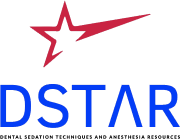BLS, ACLS and PALS Certifications
BLS, ACLS, or PALS is required for dentists who are providing sedation to patients, depending on their sedation level and patient age. Consolidate your effort and complete your Sedation renewal requirements and obtain your emergency life support certifications at the same time!
Basic Life Support (BLS) Certifications
The American Heart Association (AHA) Basic Life Support (BLS) for Healthcare Providers (CPR) course trains participants to promptly recognize several life-threatening emergencies, deliver high-quality chest compressions, deliver appropriate ventilations, and properly use an AED. This course reflects the evidence-based research from the American Heart Association Guidelines Update for CPR and Emergency Cardiovascular Care (ECC). This course is designed for healthcare professionals and other personnel who need to know how to perform CPR and other basic cardiovascular life support skills in a wide variety of in-medical facility, prehospital, and home care settings.

Advanced Life Support (ALS)
HeartCode ACLS uses a personalized adaptive algorithm that sets students on the most efficient path to ACLS mastery. Students follow a continuously adapting learning path that is personalized by their own inputs: their performance and their self- reported confidence level related to each probe. The course content is presented in the form of self-directed learning content, probes, and Cognitive Assessment Activities.
After completing the online portion, students will attend a structured, Instructor-led hands-on session that focuses on meaningful skills practice, debriefing, team dynamics training, megacode cases, discussions of local protocols and skills testing. Where available, students may also complete the hands-on session with a HeartCode compatible manikin.
HeartCode ACLS is the AHA’s ACLS blended learning delivery method. Blended learning is a combination of eLearning, in which a student completes part of the course in a self-directed manner, followed by a hands-on skills session.

Pediatric Advanced Life Support (PALS)
What does this course teach? The PALS Provider Course aims to improve outcomes for pediatric patients by preparing healthcare providers to effectively recognize and intervene in patients with respiratory emergencies, shock, and cardiopulmonary arrest by using high‐performance team dynamics and high‐quality individual skills. The course includes a series of case scenario practices with simulations that reinforce important concepts. Upon successful completion of all the patient cases, students must pass the multiple-choice exam with a minimum score of 84%. Topics include: After successfully completing this course, students will be able to Perform high‐quality cardiopulmonary resuscitation (CPR) per American Heart Association (AHA) basic life support (BLS) recommendations Differentiate between patients who do and do not require immediate intervention Recognize cardiopulmonary arrest early and begin CPR within 10 seconds Apply team dynamics Differentiate between respiratory distress and failure Perform early interventions for respiratory distress and failure Differentiate between compensated and decompensated (hypotensive) shock Perform early interventions for the treatment of shock Differentiate between unstable and stable patients with arrhythmias Describe clinical characteristics of instability in patients with arrhythmias Implement post–cardiac arrest management.

 Take Free TSBDE Anesthesia Jurisprudence Practice Exam Now!
Take Free TSBDE Anesthesia Jurisprudence Practice Exam Now!





